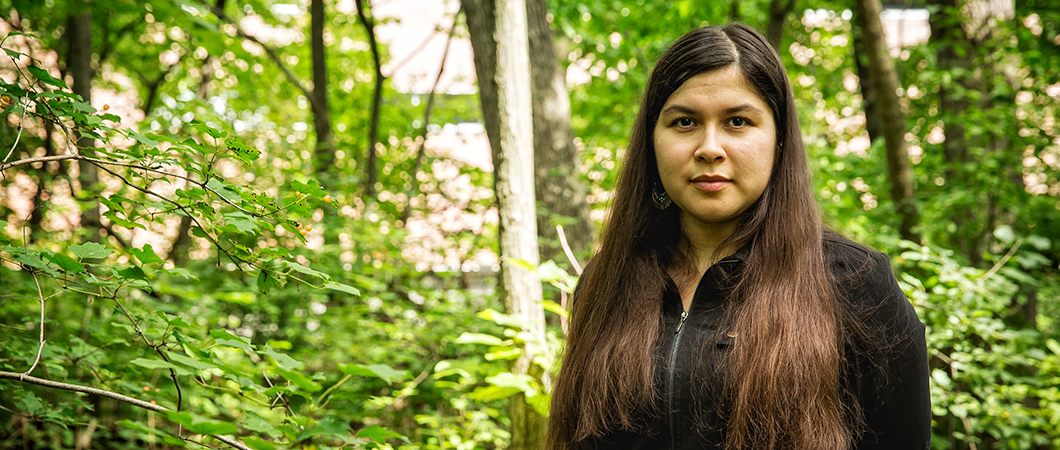Graduate Student Spotlight: Shanae Aurora Martinez

PhD student in Literature and Cultural Theory
Dissertation: Guides and Guidance: Subverting Tourist Narratives in Trans-Indigenous Time and Space
My dissertation argues that Indigenous American literatures are acts of worldmaking with radical possibilities for achieving a just society.
Indigenous literatures demonstrate how academic spaces are constructed around institutionalized authority at the expense of Indigenous American worldviews. However, Indigenous texts also disrupt institutionalized power dynamics and model cooperative relationships based on mutual respect and reciprocity, rather than competition. As Devon Abbott Mihesuah and Angela Cavender Wilson have written, “the academy is worth Indigenizing because something productive will happen as a consequence” (5). As a method for the dual process of indigenizing and decolonizing knowledge production, I use Maori scholar, Linda Tuhiwai Smith’s definition of intervening, which seeks to change institutions, rather than “changing indigenous peoples to fit the structures” of institutions (147).
The chapters of my dissertation examine historical retellings of settler colonial–indigenous American relationships, such as those found in Thomas King’s The Inconvenient Indian: A Curious Account of Native People in North America and Deborah Miranda’s Bad Indians: A Tribal Memoir. I also study novels that feature fictionalized interventions, such as Blake Hausman’s Riding the Trail of Tears. In that novel, a tour guide offers an accurate account of the Cherokee Trail of Tears on a virtual reality ride, rather than a history that is simply entertaining for the visitor. By studying the conflation of memorialization with tourism, I unpack some of the ethical and political problems that intrude on popular forms of knowledge production. While I base my arguments on literary works, such as Gerald Vizenor’s screenplay, Harold of Orange, I also draw on fieldwork at the Smithsonian’s National Museum of the American Indian and the National Museum of Anthropology in Mexico City. Both of those museums circulate problematic settler colonial narratives about Indigenous people.
My goal is to challenge the authority of these settler colonial sites of knowledge production using the methods found in indigenous literatures. By changing the stories that we tell about ourselves and each other, we can reconfigure the personal, communal, institutional, national, transnational, and global spaces in which they exist. Because universities across the Americas are on Indigenous lands, implementing social justice practices at the sites of knowledge production is a crucial step toward decolonization, peaceful coexistence, and the rightful return of Indigenous lands to achieve liberation for all.